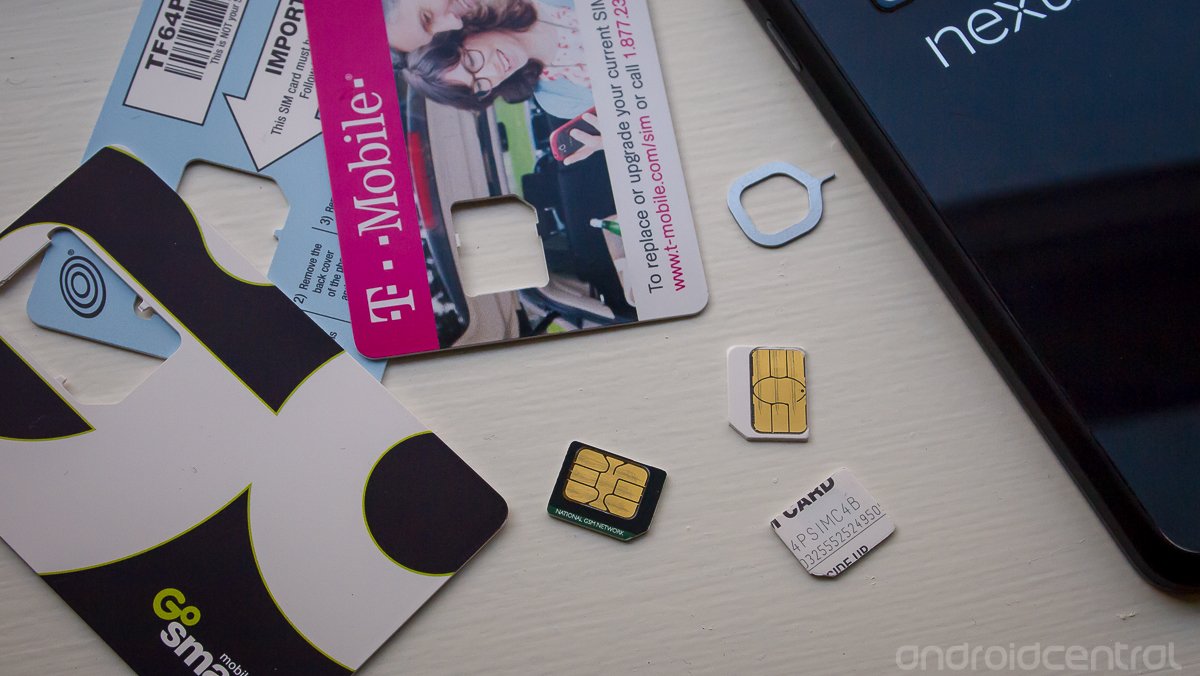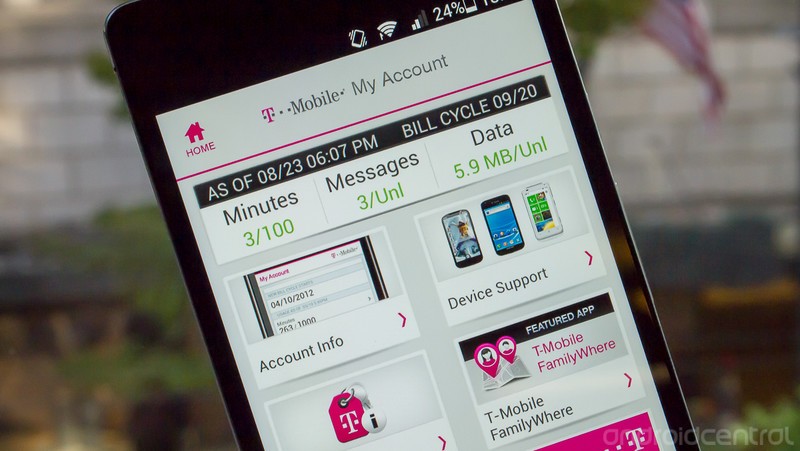The dark side of prepaid

There has been a slow but steady drumbeat of people starting to talk about the merits of prepaid, and contemplating a switch for themselves. A small group of dedicated individuals who haven't had a phone contract in years push the idea even more often. Not having a contract for well over 2 years I'm closer to the latter group, and although I've been quick to sing the praises of prepaid phone service I also find it a necessity to explain that the grass isn't always greener -- there are some brown patches and weeds over here.
The idea to pull this together came from a recent experience switching carriers. Although I had been happy with my choice to use Straight Talk (an AT&T SIM, if you were wondering) for the past 5 months, a move to an area with excellent T-Mobile coverage had me willing to switch to something new. After all, one of the best parts about prepaid service is your ability to switch monthly to a new carrier. T-Mobile recently launched a new off-branded prepaid carrier called GoSmart Mobile, which offered a comparable $45 plan to Straight Talk's, so I decided to give it a try.
But, as I said, the grass isn't always greener ...
Although I have used Google Voice as my primary number for well over a year, there are still some lingering places where my "old" number comes in handy. Being the case, I decided to port my number from Straight Talk to GoSmart. Well, that was a bad idea. To make a long story short (and move on to my larger point) the port failed, which once my Straight Talk service turned off left me with a dead Straight Talk SIM and a dead GoSmart SIM. And of course, no working phone to call in and remedy it.
I was left with two dead SIM cards and no working phone to call and fix the situation.
Luckily I was able to borrow another phone and call GoSmart customer service. While the CS was generally helpful (and U.S. based, which is great), they were dumbfounded trying to deal with my request. At one point I was told I wouldn't be able to even request a refund for my service -- regardless of the fact that my service never actually started. After plenty of time and posturing, I was eventually exported to a customer service rep at T-Mobile that could actually help me. But even at that point all he could do was cancel the port completely, leaving me still with no service and two dead SIM cards.
The prepaid tradeoff

In exchange for cheap prices, you're going to get cheap service — prepaid is a low-margin business.
This is the big crux when it comes to prepaid service. There's not a whole lot you can expect from the prepaid carrier you're dealing with when all you're owed by it is the one month of service you've already paid for. Margins are thin on prepaid service, and they didn't have to spend a whole lot of money to acquire you as a customer. For this reason they're unlikely to spend much to try and keep you either. Contrast this with your typical postpaid carrier, which has likely invested a huge amount of money in customer acquisition (so much so that they want to lock you into a contract), and will more likely be willing to keep you around and keep those $100+ monthly bills rolling in.
In exchange for cheap prices, you're going to get cheap service -- and the easiest way for carriers to cut costs is in customer service and customer acquisition/retention. Now this is all well and good if you simply pick up a new line with a new number, use it for a few months then let it expire. But as soon as you expect more from a prepaid carrier (at least for now), as we've seen above, you're setting yourself up for an unfriendly experience.
Be an expert in 5 minutes
Get the latest news from Android Central, your trusted companion in the world of Android
Managing expectations
So that being said, if you are someone that doesn't have an attachment to your carrier-assigned phone number -- Google Voice, anyone? -- and go into the prepaid experience with a moderate understanding of what you're going to get from it, there are incredible deals to be had. At least for the moment, prepaid is all about managing expectations. I strongly think that a majority of the bad experiences people have had with prepaid are based in the fact that they came from another postpaid carrier expecting the exact same service at half (or less) of the price every month.
Read, research and see what's right for you, then choose a carrier that fits your needs.
And that's just not going to happen. But that doesn't mean you should completely block out prepaid as a viable smart phone service option. There are a whole lot of people out there -- but certainly not everyone -- for which a prepaid carrier is a vastly superior option than the current postpaid carrier they're on. And we don't want those people scared away from trying it because of a couple of horror stories about losing your number.
Read. Research. See what's right for you. Then choose a carrier that has the highest chance of meeting your needs and expectations -- there's a good chance a prepaid carrier is the one that does that.
So what happened to my phone number?

If I don't like the service I received for my money, I'll go try something new next month.
Alas, my original phone number that I attempted to port from Straight Talk to GoSmart Mobile is gone. Stuck in the ether somewhere between the systems of both carriers, to be put on a shelf (virtually, of course) for a few months and reassigned to someone else that signs up for its services.
Fortunately there is a positive mark for one prepaid carrier in this story, and that is T-Mobile's self-branded prepaid service, which with a SIM Activation Kit and 10 minutes on their website had me up and running with a full month's service for just $30 -- no strings attached. Now of course that includes a new, random number from my current area code, but I challenge you to find a postpaid carrier that will have you up and running that fast. Best of all, if I don't like the service I received for my $30, I'll go try something new next month.
Andrew was an Executive Editor, U.S. at Android Central between 2012 and 2020.

